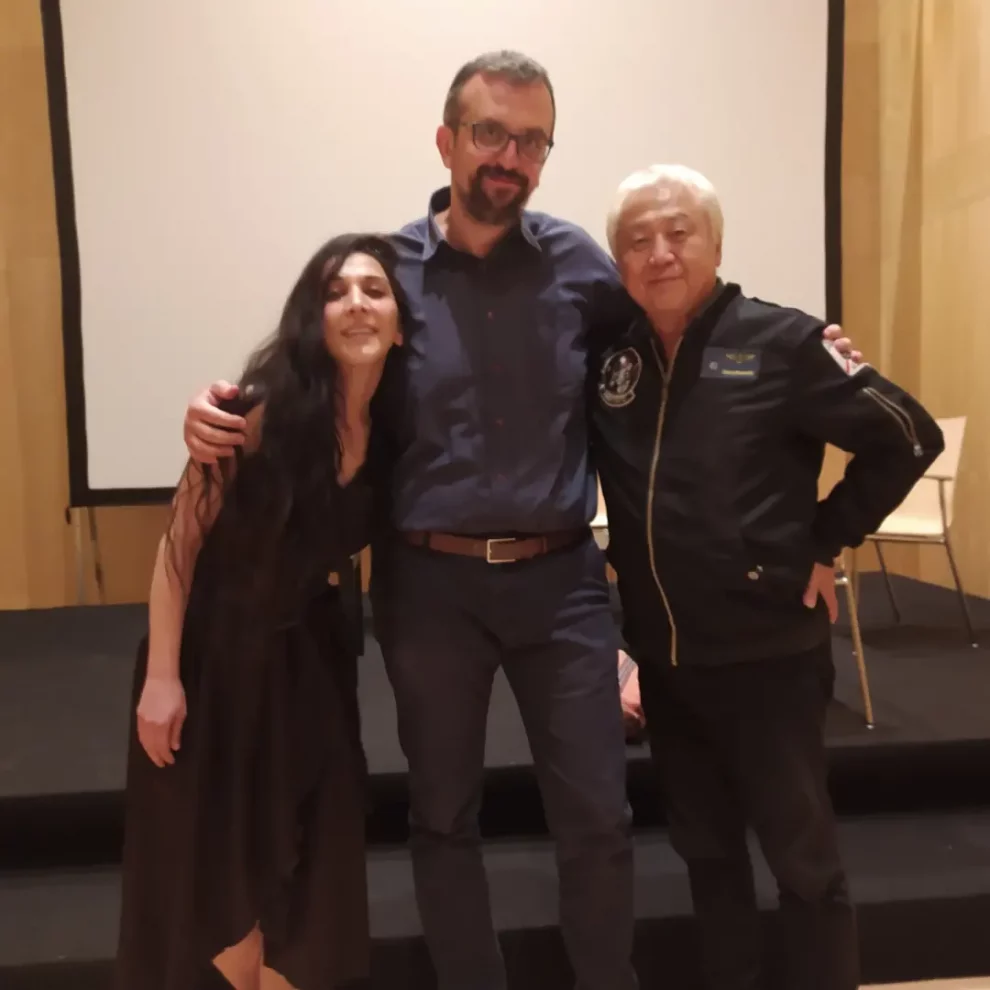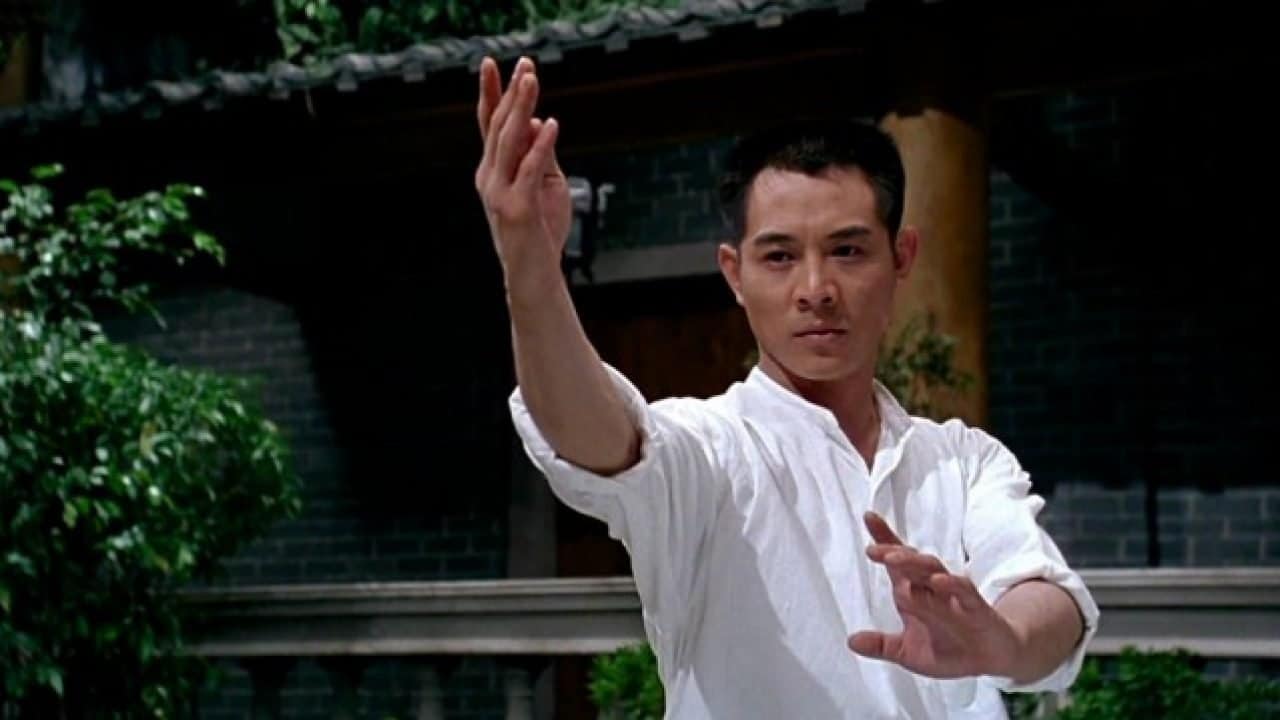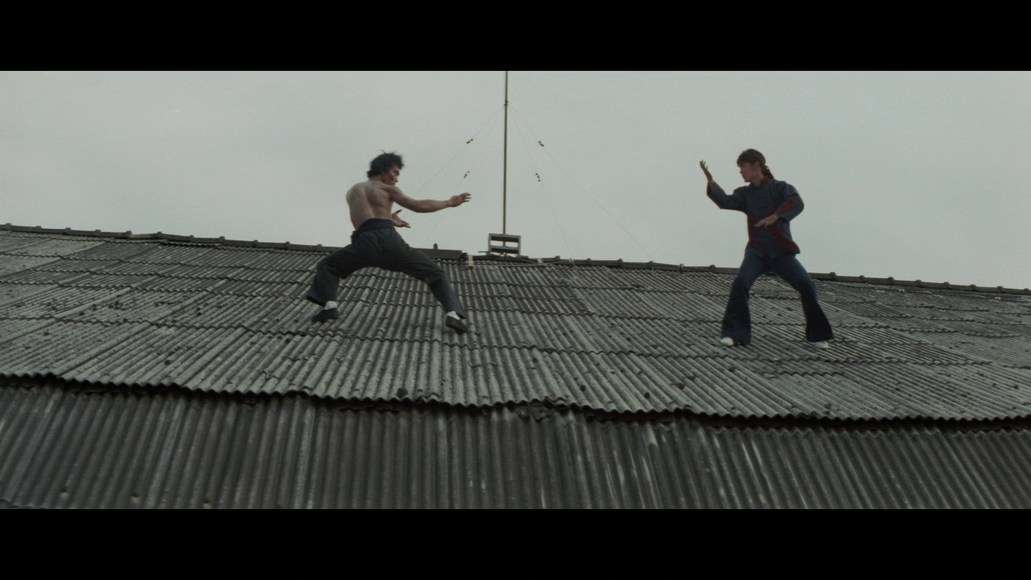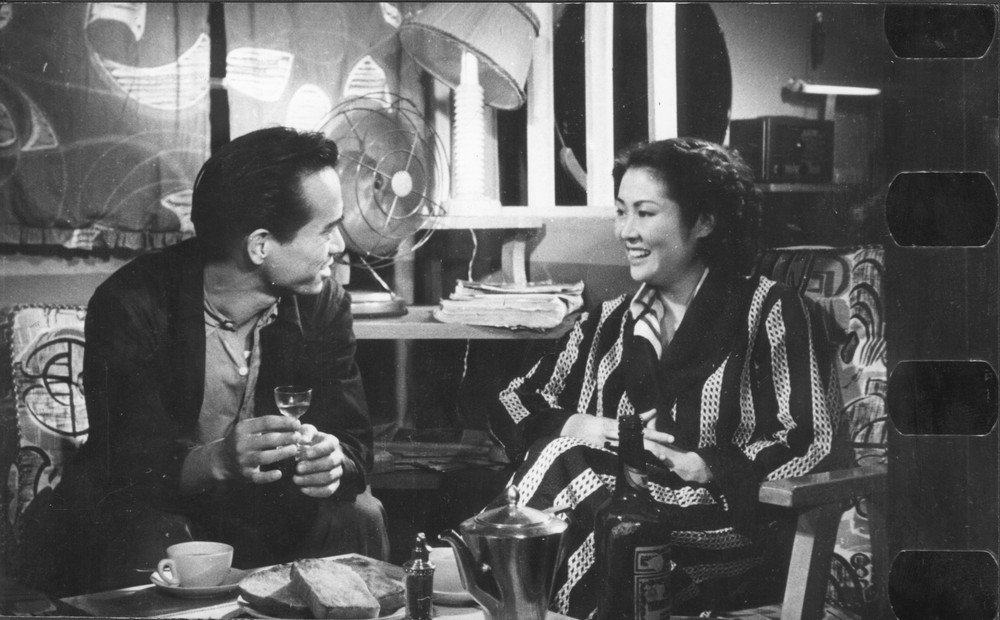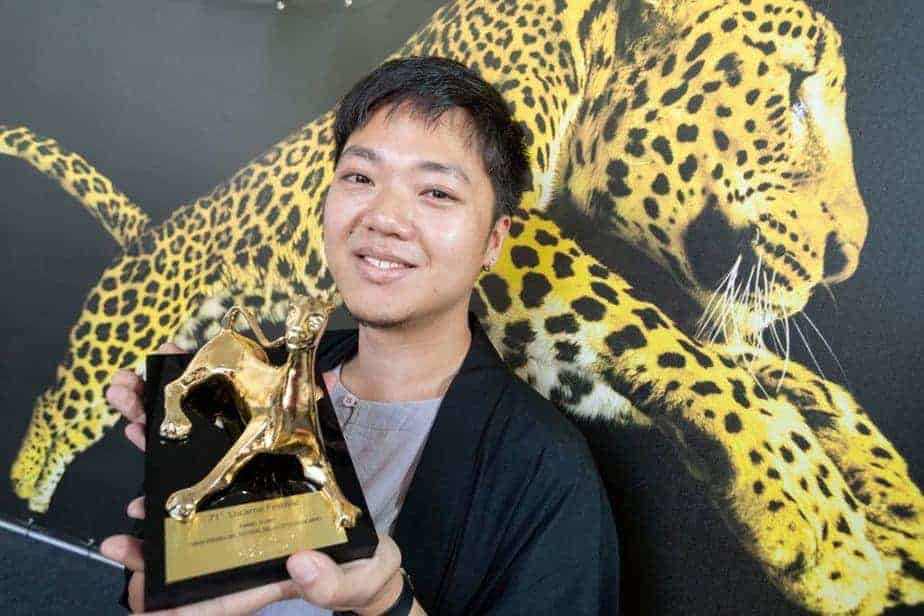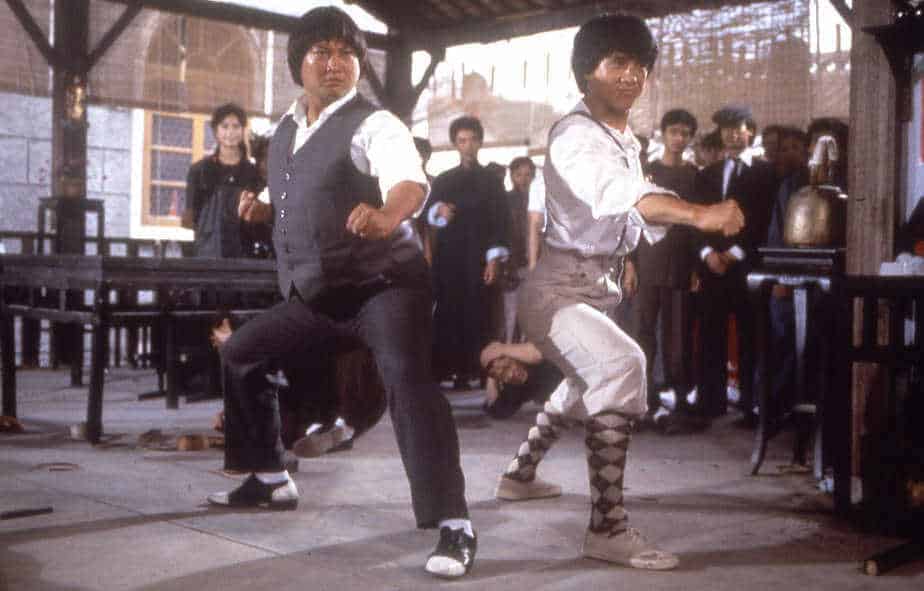Kim Sujin (born 1954) and his Shinjuku Ryōzanpaku Theatre Company attest to the variety of styles employed in recent works by resident Korean artists in Japanese literature and theatre. The appearance of his plays and films is connected to the changing identities of resident Koreans, especially since the 1980s. Kim makes use of political theatre performances of the earlier period to magnify and to remake into art the experiences of resident Koreans in Japan. As such, his works mobilize the legacy of his antecedents in Japanese theatre as well as the past experiences of resident Koreans. Instead of enacting an essential Korean ethnicity or culture onstage or through films, Kim inclines toward denoting migration, hybridity and being situated as betwixt and between. By doing so, his works depict the distinct niche occupied by resident Koreans in Japan, which distinguishes them from both the Koreans on the mainland and the Japanese. In cinema, he has cooperated repeatedly with Shinya Tsukamoto.
Sahel Rosa (born 21 October or 23 October 1985 in Iran), also sometimes known as Sahel Rose, is an Iranian model and actress working in Japan. She was orphaned in the Iran-Iraq War at age four, and then was adopted, and later moved to Japan with her adopted mother. As a teen, Sahel entered the acting and modeling fields to help her adopted mother, who struggled financially to support herself and her daughter after being turned out by her fiancé shortly after their arrival in Japan. In 2009 she published her autobiography From the War Zone to (the Life of) an Actress She frequently appears in anti-war documentaries, and in works dedicated to Japan's immigrant community and the Iranian diaspora. Recenty, she starred in “My Small Land” a movie about the life of Kurds in Japan.
On the occasion of the stageplay “The Respectful Prostitute” screening at InlanDimensions, we speak with them about corruption, PM Abe and his death, the Unification Churh, the tension in the play and the role Sahel Rosa plays, and many other topics.

The film shows that corruption comes from the cooperation of the capital with politicians and the police. Is that the same for Japan and do you think there is any change since the time the story of the play takes place?
Kim Su-jin: It is still the same, also in Japan. Because the people who are in power are still the same and they do whatever they want. For example, the former Prime Minister, Shinjo Abe tried to change the constitution, which does not allow Japan to go to war, probably in order to prepare to go to war against North Korea, who has nuclear weapons now.
Abe was assassinated recently in a terrorist attack, but when he was alive, he was trying to take money from poor people and give it to the rich, essentially just like Trump was trying to do, and he was doing that through the Unification Church, because his grandfather, a former Prime Minister was connected to the top echelons of the Church. And now they are giving Abe a state funeral, which is kind of weird, he is not an institution like the Queen of England. And why does this happen? There is a person called Aso who is in the shadows, and probably the one making all these decisions. He is also the one who puts pressure on people of Korean descent in Japan and forces them to change names.
Do you think that this corruption is one of the main sources of violence in society?
Kim Su-jin: It is not only due to the politicians, but also because the people are really unaware of history, they only learn what is easy for them to learn and not what really happened. For example, in the case of Korea, the events that took place during the Japanese Occupation, which lasted for four decades without anyone ever apologizing, but Japanese think that nothing happened. People who have power are also responsible for what is happening.
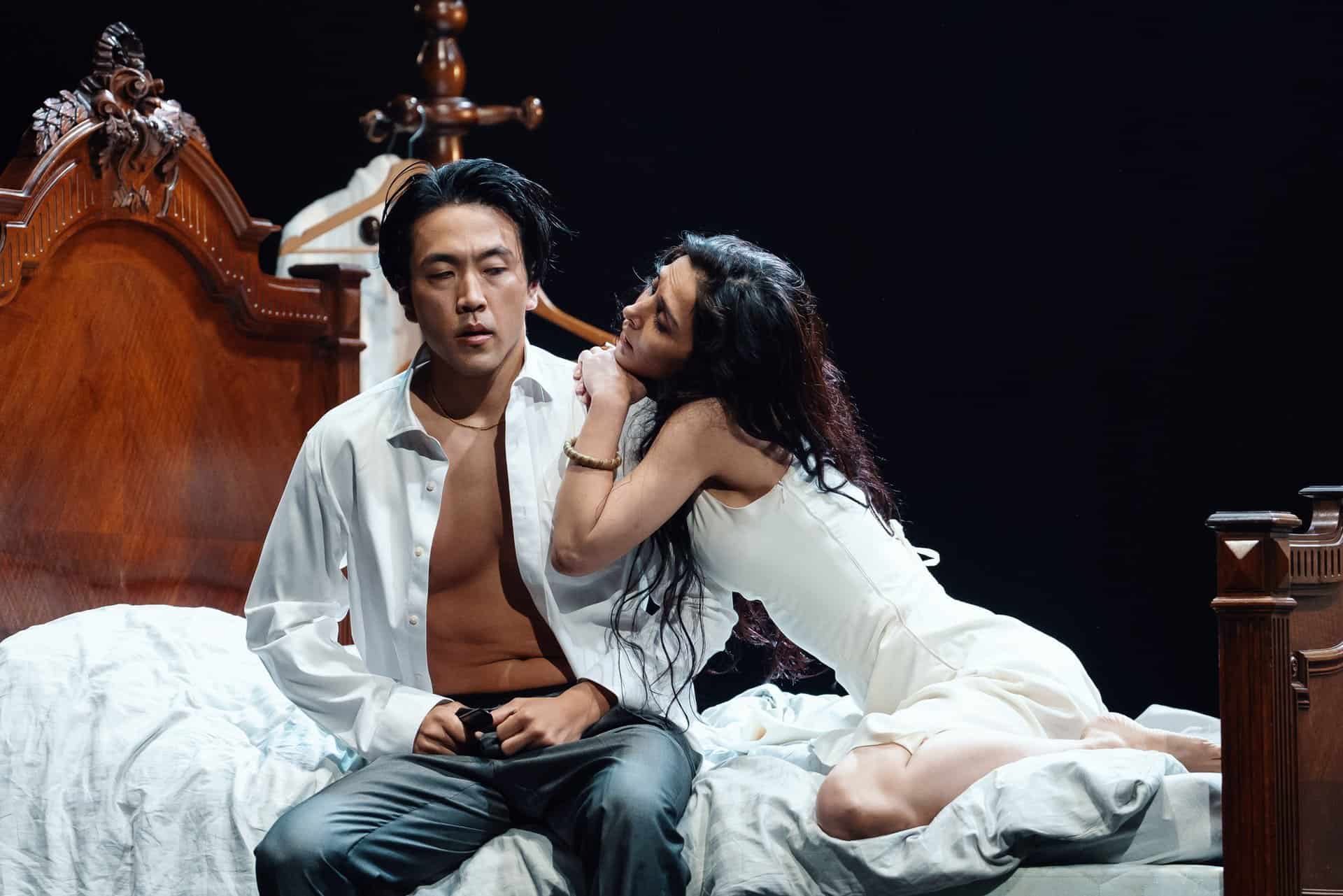
So, the violence that Lizzie resorts to in the end of the film, do you think that it comes from this corruption, this sense of injustice?
Sahel Rosa: The protagonist's heart got broken, because in the beginning she had her own will, she wanted to do the right thing, she didn't want to lie, but the circumstances forced her to, even though she did not want to. She was something like the Joker, from the Batman movie, because in the beginning she did not want to do anything bad, but was pressed into it.
Kim: It is like the man who killed Prime Minister Abe because he held a grudge for the Unification Church, and is not exactly that, but you could say he was pressured by the circumstances.
Fred at some point returns to Lizzie, because he says he is bewitched by her. Is it love or just lust?
Rosa: Maybe even Fred did not know if it was love or lust, maybe he just wanted to have a person that he could go back to, someone who will reach for him. Because a woman can also be a mother and when Lizzie was talking with Fred, she was thinking maybe he is an orphan also, because he did not want to speak about his mother, just about his sisters. Maybe it is this lack that made him search for a warm place that will always welcome him, and that is why he came back.
Kim: In the beginning of the play, we show some photos of the protagonist, before and after she became a prostitute. There is one picture of her and her mother which has her face covered with black ink and it means that maybe neither the protagonist receives love, just as Fred does not want to talk about his mother, for the same reason. Maybe they are both looking for this kind of motherly love.
To go back to the Unification Church, the person who killed Abe also had issues with his mother, because she gave away all her money to the Church. Maybe she just did not love him so much, because she was so dedicated to the church, and he did not receive the love that he needed. The common term of all is mother's love.
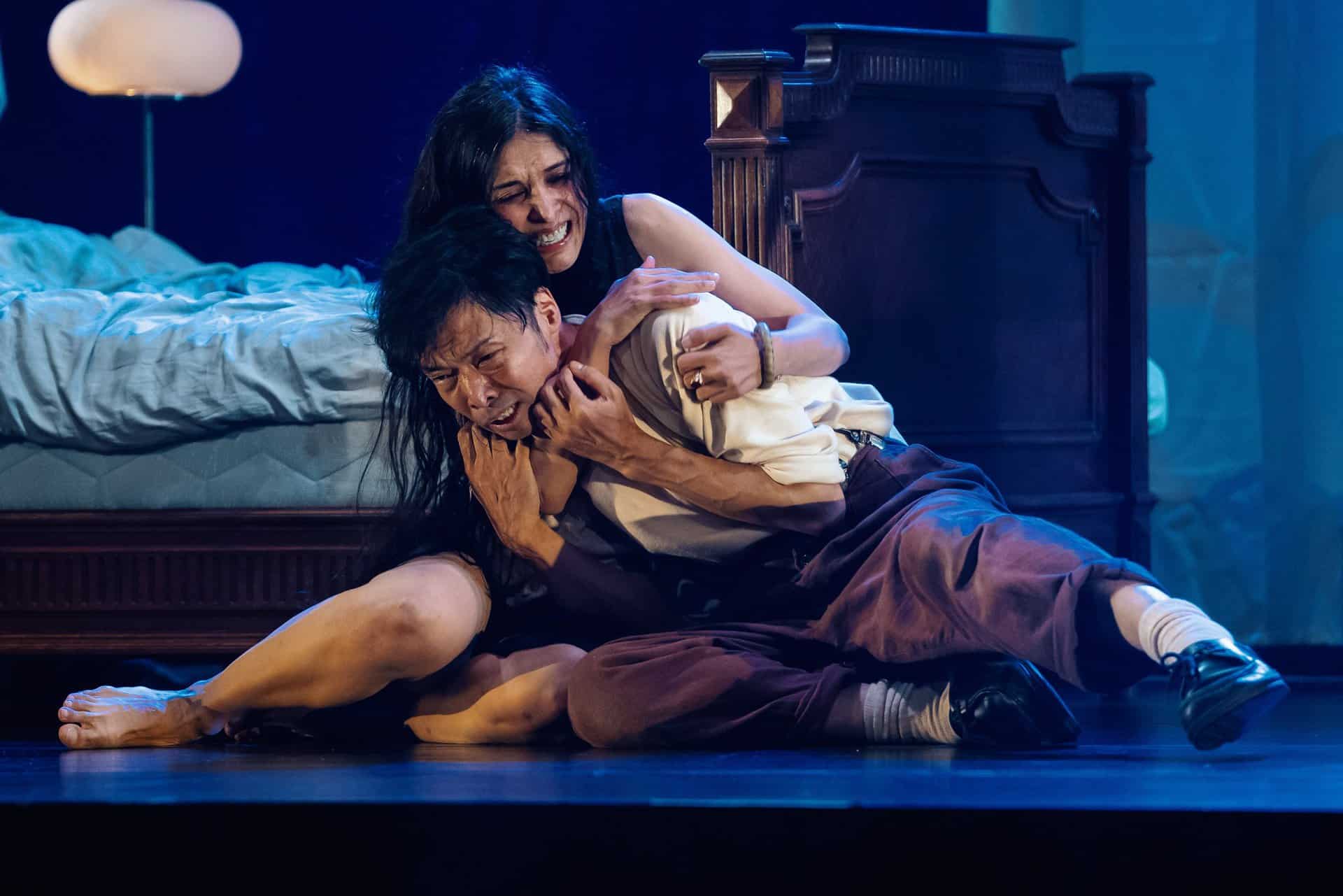
Is the Unification Church a cult of sorts?
Kim: Yes, but it is very closely related to the leading Party, something that became clear after Abe was killed. They tried to hide it, but it eventually became evident that a lot of people who hold power in Japan are connected to the Church.
Do you like the character that you play in the play?
Rosa: It is hard to tell because I am playing it with what I have, the character is essentially me. I do not mean I have the same lifestyle but the character is mine so I did not really part myself from the role. I did not look at her as another person, and she is like every other person: she pretends to be strong but in her heart she is a bit weak and she lives the only life she has to live.
There is a certain tension in the play, both in the way the story unfolds and in Rosa's acting. What creates this tension, in your opinion?
Kim: We are talking about a sense of freedom because Sahel was living in this kind of stressful environment all her life, because she is an orphan and did not really know her parents. In the play, there is a moment when rain is falling and it is like inside her the rain is always falling, because she had to struggle all her life. This kind of struggle is expressed in the play and that is the reason for the tension you mentioned.
How did the audience in Japan respond to the play?
Kim: The play had a huge impact, although in the edition we presented in Japan, it was more about the people of Korean descent in Japan than Americans. At the time, PM Abe was still alive, but now it is more difficult to stage it in that way. To explain a bit more, the staging when they were playing in Japan was that the second Korean war had broken and all those refugees came to Japan and they were facing all kinds of difficulties. Yamaguchi prefecture, which is Abe's home prefecture, is the closest to Korea, so a lot of refugees went there and a number of them were treated like animals.
So, would you say Japanese people are racist?
Kim: Yes, you would be shocked with how much.
Do you feel it also?
Rosa: People from my region, when they say something even remotely negative for Japan, the response is always like “If you don't like it, just go back to your country”. Of course, there are a lot of people who are welcoming us with open hands, but there are a lot who don't, and their voices are actually louder. Essentially, people from overseas do not have their own space in Japan, they are always refugees.
Kim: Because Japan is an island country and they raise their children like that, we are a community where the emperor is at the top and if you don't belong to this community, you are not welcome.
Rosa: I just wanted to mention that a lot of art people, from theater and from movies, know these issues and they try to talk about it, they are making new movies and new plays about it, and they really want to speak about these problems. A part of society does not pay attention to refugees, but the artists do and they try to overcome those obstacles with their work. Mr Kim was one of the first to raise this topic in his art, which is really important.
Kim: Japan is the country that takes in the least refugees; nowadays, there are a lot of countries that are reluctant to take refugees, but Japan is leading among them
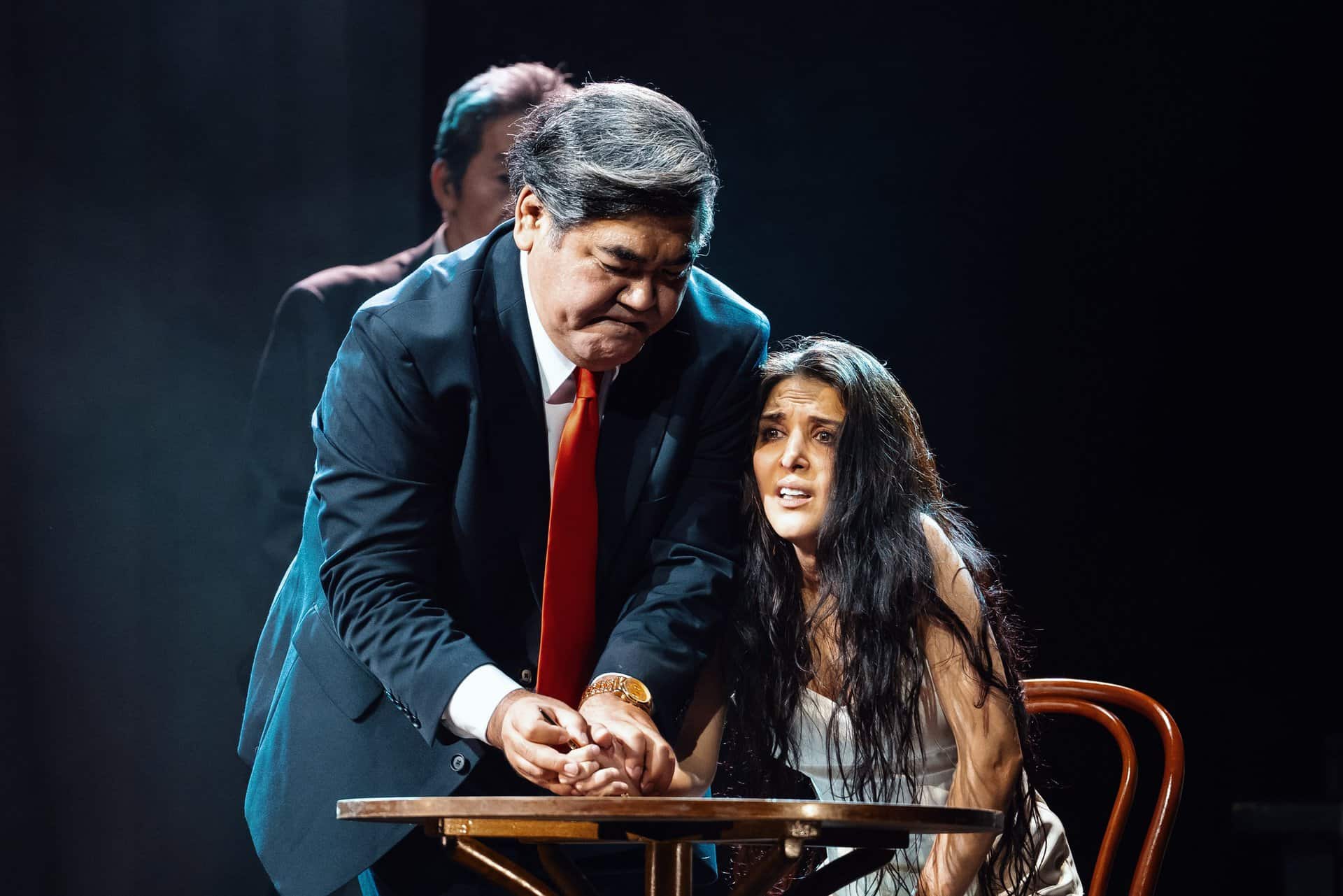
Considering, though, that the Japanese population is aging rapidly, won't the government have to open the borders at some point?
Kim: They are ok for someone to come to work and then go back, but they are very reluctant to accept someone who wants to stay forever in Japan
Rosa: But considering that the population is aging, some help will be needed, for example, in the agricultural sector. As foreigners, we witness some strange facts, for example, during the pandemic, there was some kind of movement in Japan to support foreigners, but at the same time, when this movement was formed, there was an anti-movement trending on Twitter. We could not understand why, as foreigners, since we are paying taxes and we are doing everything we owe to do, and we just want to coexist with you, why won't you accept us? It is like we are going at them with open hands and they are coming at us with knives. It is really sad because the younger generation tries to globalize and open their horizons in the way they are thinking, but the previous generations just turn their backs at us and they do have some impact on the younger generations.
Can you tell me a bit about the experience of acting in “My Small Land”?
Rosa: The movie portrays the situation of a Kurdish family living in Japan, whose visa gets revoked and thus, they have lost all their rights to work, to have a health card etc. I wanted to know how it is to be a Kurdish person so I learnt the language from the start. I think the movie is really important because it is probably the first time in Japan that someone is speaking about this topic and not in a documentary, but in a feature movie.
You have worked with Shinya Tsukamoto as an actor a number of times. How was the experience?
Kim: I played the father in Tetsuo II. He is a very nice guy, and he also blew some new wind in the movie industry. I respect him a lot.
Is it ok to take orders from another director?
(laughter) No problem. I am acting and I am just saying: Ok! I understand!


